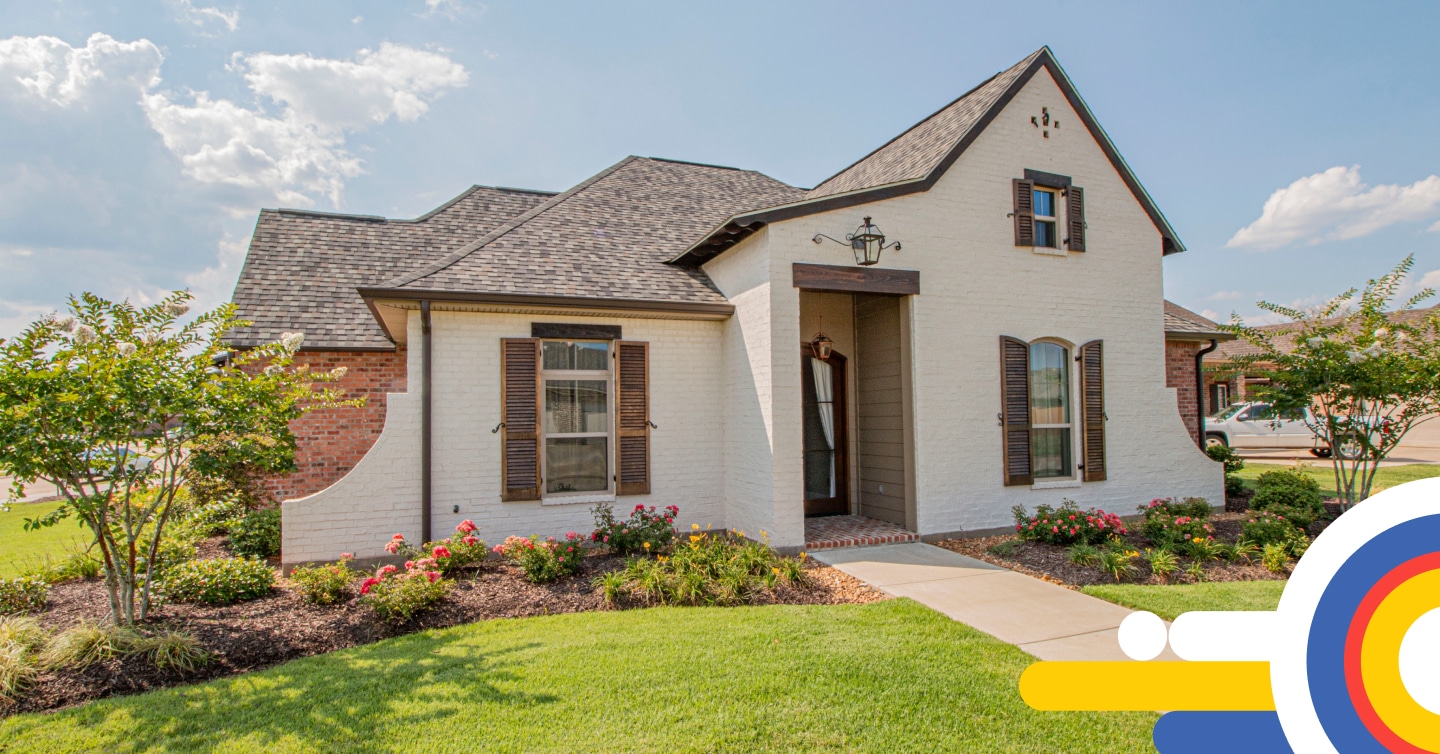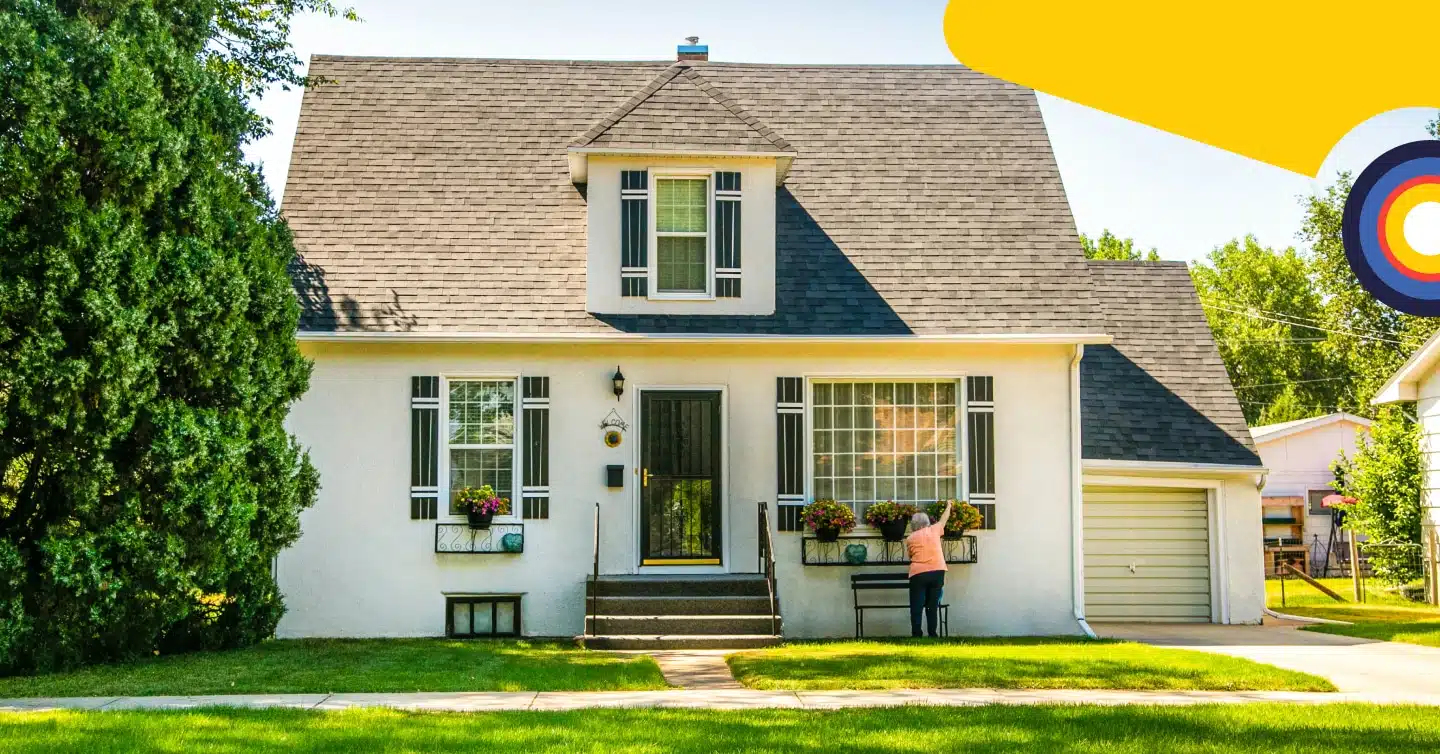How to Increase Your Mortgage Amount

Table of contents
Many Canadians begin the homebuying journey by getting pre-approved for a mortgage, only to discover that the amount they qualify for doesn’t quite cover what they need. Between rising property values and stricter mortgage stress test rules, even solid earners can find that their buying power is more limited than expected.
If you’ve run into this roadblock, the good news is that there are ways to increase your mortgage amount. Lenders assess your financial situation using specific ratios, and with the proper adjustments, you can shift those numbers in your favour. Whether you’re a first-time buyer or moving up the property ladder, we’ll walk you through what affects your pre-approval and how to strengthen your mortgage application.
Key Takeaways
- Reducing debt and improving credit can significantly boost your mortgage eligibility.
- Increasing your down payment and extending the amortization can improve your borrowing power.
- Adding a co-signer can help you increase your mortgage amount by increasing the income used for the debt service ratio calculation.
What Determines Your Mortgage Amount?
Before exploring ways to increase your mortgage amount, it is helpful to understand the factors that determine how much you are approved to borrow. Lenders consider several key elements when evaluating your mortgage application. These provide insight into your financial habits, obligations, and future capacity to handle more debt. Here’s what most lenders will closely examine:
- Income: Your gross income helps determine how much debt you can carry. The higher your verifiable income, the larger the mortgage you may qualify for.
- Debt Service Ratios: Gross Debt Service (GDS) and Total Debt Service (TDS) ratios are critical. They represent the share of your income used to cover housing costs and all debt payments, respectively. Typically, insured and insurable ratios are limited to a maximum of 39% GDS and 44% TDS. Staying within these ratios is crucial for qualification.
- Credit Score: This reflects your creditworthiness. A higher credit score generally gives lenders more confidence that you’ll manage repayments responsibly and can help you secure better rates. All applicants for a mortgage should aim for a FICO credit score of 680 or higher.
- Down Payment: A larger down payment means you’ll need to borrow less, which lowers the lender’s risk, or it can increase your purchasing power by bridging the gap between the mortgage approval amount and the purchase price.
- Amortization Period: Spreading out your mortgage over a longer period reduces the required mortgage payment, which helps you qualify for a larger loan. However, a longer amortization increases your interest-carrying costs.
- Interest Rate: The qualifying rate, which is higher than your contract rate, is used to stress-test your ability to repay a mortgage. Lower interest rates reduce the income needed to qualify for a higher amount.
Tips to Increase Your Mortgage Pre-Approval Amount
If your pre-approval wasn’t as high as you hoped, you have options. There are several ways you can prepare and improve your mortgage eligibility. By understanding how lenders evaluate your file, you can often boost your borrowing power enough to make homeownership more attainable.
Pay Down Existing Debt
Outstanding debts, particularly those like high-interest credit cards and car loans, can negatively impact your Total Debt Service (TDS) ratio. Reducing the balances on the debts you owe will directly increase the amount of your income that is free to be allocated toward a future mortgage payment. Even a few thousand dollars paid off can make a noticeable difference.
For example, a $300 monthly car loan payment could reduce your mortgage eligibility by tens of thousands of dollars. This limits your borrowing power as the same income must now stretch further to cover both your car loan and potential mortgage payments.
Improve Your Credit Score
Your credit score influences both mortgage approval and the interest rates you are eligible for. Even modest improvements to your score can help you obtain a more competitive rate and be viewed more favourably by borrowers.
To improve your credit score:
- Keep your credit card utilization ratio (including all other revolving credit) at or below 30% of the limit.
- Pay all bills on time, every time, while allowing time for payments to reach the billing company before its due date.
- Avoid applying for new credit in the months leading up to a mortgage application.
Increase Your Household Income
Lenders base your mortgage amount on how much income you earn compared to how much debt you carry. If your current income limits your borrowing power, increasing your household income can be one of the most effective ways to boost your pre-approval mortgage amount.
While this doesn’t necessarily mean finding a new job, it could mean making better use of existing income streams or bringing another qualified earner into the picture. If your income fluctuates, some lenders use a 2-year average, so keep records as proof of income.
- Add a co-borrower: This could be a spouse, partner, or family member. Their income is combined with yours to increase total affordability. A parent or sibling with little to no credit obligations, ample qualifying income and excellent credit history could help you purchase a home as a guarantor. This allows you to be the sole title holder, allowing you to remove them without a costly refinance whenever your mortgage renews.
- Prove additional income: Side hustles, seasonal bonuses, and part-time work may be considered, depending on the lender, as long as they’re stable and documented as an average over a 2 year period.
- Strengthen employment history: Lenders prefer to see consistent income over time. Being recently promoted within the same company or moving to a new job within the same field may still qualify you. However, changing jobs into a completely new field isn’t recommended before getting a mortgage, as it may hinder your ability to qualify if you don’t have at least 2 years of stable, verifiable income.
Increase Your Down Payment
Boosting your down payment is one of the most direct ways to increase your purchasing power. Making a larger down payment can either lower your loan-to-value (LTV) ratio or help compensate for any shortfalls between the mortgage amount and the purchase price.
If you put down 20% or more, this allows you to extend the amortization up to 30 years, which can lower your mortgage payments and help you qualify for a larger mortgage. Additionally, it allows you to avoid mortgage default insurance premiums.
New mortgage default insurance rules allow first-time home buyers (FTHB) or those purchasing a newly built home to extend their mortgage amortization up to 30 years with as little as a 5% down payment.
There are several ways to increase your down payment:
- Use savings from a TFSA or FHSA: These tax-advantaged accounts are designed to help you save efficiently.
- Access RRSP funds through the Home Buyers’ Plan (HBP): First-time buyers can withdraw up to $60,000.
Consider a Longer Amortization
Opting for a 30-year amortization instead of a 25-year amortization lowers your mortgage payments. Lower payments improve your GDS and TDS ratios, allowing you to qualify for a larger loan amount. Some lenders may even consider an exception to extend the GDS ratio above 39% in instances where a borrower with an excellent credit score (over 720) has no outside debts (the TDS ratio is the same as their GDS).
However, longer amortizations result in more interest being paid over the life of the mortgage. It’s a trade-off between boosting short-term borrowing power and increasing long-term cost. Also note that insured mortgages (with a down payment of less than 20%) are capped at 25-year amortizations, unless you are a first-time buyer or purchasing a newly built home.
Choose a Lower Interest Rate
Your qualifying amount is based on a stress-tested minimum qualifying rate (MQR), either the contract rate plus 2% or the Bank of Canada benchmark rate of 5.25%, whichever is higher. Lower rates make passing the stress test easier and allow you to qualify for more favourable terms.
That’s why selecting the lowest qualifying rate isn’t just about savings; it can also unlock a larger mortgage approval amount. Even a rate difference of 0.25% can increase your borrowing capacity by thousands of dollars.
However, be mindful of the trade-offs: some low-rate mortgages may come with limited or no prepayment privileges or higher penalties for breaking the mortgage before the end of the term. Ensure the rate you choose supports both your current budget and the flexibility you may need in the future, such as for employment or life changes.
Consider Non-Traditional Lenders
If prime A-lenders have turned you down or offered you less than what you need, subprime B-lenders or private lenders could be a viable solution, depending on your needs. These types of lenders cater to borrowers who may not meet the strict qualification criteria of A-lenders but are still financially capable of carrying a mortgage.
Private lenders have more flexible criteria and are more willing to work with self-employed individuals or those with non-traditional income sources. However, keep in mind that alternative or private lenders should be a short-term solution while you work toward moving your mortgage to prime lending. Interest rates are typically higher, and these mortgages are usually shorter-term, requiring a sound exit strategy and a refinance at higher rates to move to prime lenders.
Subprime lenders are ideal for:
- Self-employed individuals with complex or variable income
- Buyers with bruised credit histories
- Clients with high net worth but low reported income
Get approval on your low rate today
No big bank bias, just commission-free experts ready to help you.
Use Gifted Down Payment or Co-Borrowers Strategically
For many borrowers, especially first-time buyers, hitting the income or down payment requirements for a higher mortgage amount can be challenging. That’s where family support can make a meaningful difference. Using a gifted downpayment or adding a co-borrower are two ways to strengthen your mortgage application.
Gifted Funds
Gifted funds from an immediate family member (parents, grandparents, and siblings) can be used to increase your down payment. Most lenders have strict guidelines that must be followed for this down payment source. You will require a signed gift letter confirming that the money isn’t a loan and that the funds come with no repayment expectations.
Confirmation of the source of funds (SoF) must be provided through the donor’s bank statements or attested to by their financial institution, where their deposits are held. As well the beneficiary’s bank statements showing the cheque, draft, or wire payment deposit will be required to prove the funds have been deposited into the buyer’s account for at least 30 to 90 days, depending on the lender and default insurer, before it can be used as part of the down payment.
Adding a Co-Borrower
A co-borrower, such as a co-signer or guarantor, often a parent or a financially stable and creditworthy immediate family member, can also increase the mortgage amount you’re approved for. A co-borrower’s income is added to your application, which can help improve your GDS and TDS ratios and support a larger mortgage.
This option works best when the co-signer or guarantor has strong credit and low personal debt compared to income. First-time buyers are increasingly more likely to use co-borrowers to help meet qualification criteria for a mortgage. While helpful, it’s also a serious commitment: co-borrowers are legally responsible for the loan if you can’t meet your payment obligations.
Deciding between a co-signer or guarantor will depend on whether your co-borrower expects to be removed from your mortgage once you can qualify on your own. A co-signer will go on your mortgage and your property’s title, meaning you’ll need to refinance your mortgage to remove them from the title.
A guarantor will only go on your mortgage, meaning they will have no ownership of your property. A guarantor is helpful if you’re looking to get help to qualify for your first home, but plan on removing them when you renew your mortgage. Typically, it’s cheaper to renew than refinance your mortgage, as a refinance comes with higher interest rates and fees compared to a renewal.
Important: Homebuyers should be aware that if more than 50% of the down payment and income used to qualify for a home purchase comes from a guarantor, the lender may require them to be listed on the mortgage as a co-signer to reduce overall risk.
Frequently Asked Questions (FAQ) About Increasing Your Mortgage Amount
Will paying off my credit cards help me qualify for a bigger mortgage?
Yes, paying down any debts, such as credit cards, to lower the balance improves your Total Debt Service (TDS) ratio. This allows a higher portion of your income to go toward mortgage payments instead of existing debts. Lowering the amount of debt you have is one of the best ways to help you qualify for a bigger home loan.
Can adding a co-signer increase my mortgage amount?
Yes, adding a co-signer can increase the amount of mortgage you qualify for by combining their income with yours. Their financial profile can help add to your application and increase the total amount a lender is willing to approve.
Does increasing my down payment help me qualify for a larger loan?
A larger down payment can reduce the size of the mortgage you require and eliminate the need to purchase mortgage default insurance. A larger down payment of 20% or more can also allow you to increase the amortization from 25 to 30 years, helping you qualify for a larger mortgage amount. A larger down payment can also help by bridging the gap between your mortgage approval amount and the purchase price.
Final Thoughts
Qualifying for and increasing your mortgage amount doesn’t mean you need to borrow the maximum you can afford. The goal is to find a mortgage that supports both your homeownership goals and your long-term financial health. Whether you’re trying to enter the market as a first-time buyer or searching for your next home, these strategies can help you leverage a modest pre-approval into more meaningful purchasing power.
Connect with a nesto mortgage expert today to review your options and build a home financing strategy that supports your long-term goals.
Why Choose nesto
At nesto, our commission-free mortgage experts, certified in multiple provinces, provide exceptional advice and service that exceeds industry standards. Our mortgage experts are non-commissioned, salaried employees who provide impartial guidance on mortgage options tailored to your needs and are evaluated based on client satisfaction and advice quality. nesto aims to transform the mortgage industry by providing honest advice and competitive rates using a 100% fully digital, transparent, seamless process.
nesto is on a mission to offer a positive, empowering and transparent property financing experience – simplified from start to finish.
Contact our licensed and knowledgeable mortgage experts to find your best mortgage rate in Canada.
Ready to get started?
In just a few clicks, you can see our current rates. Then apply for your mortgage online in minutes!















